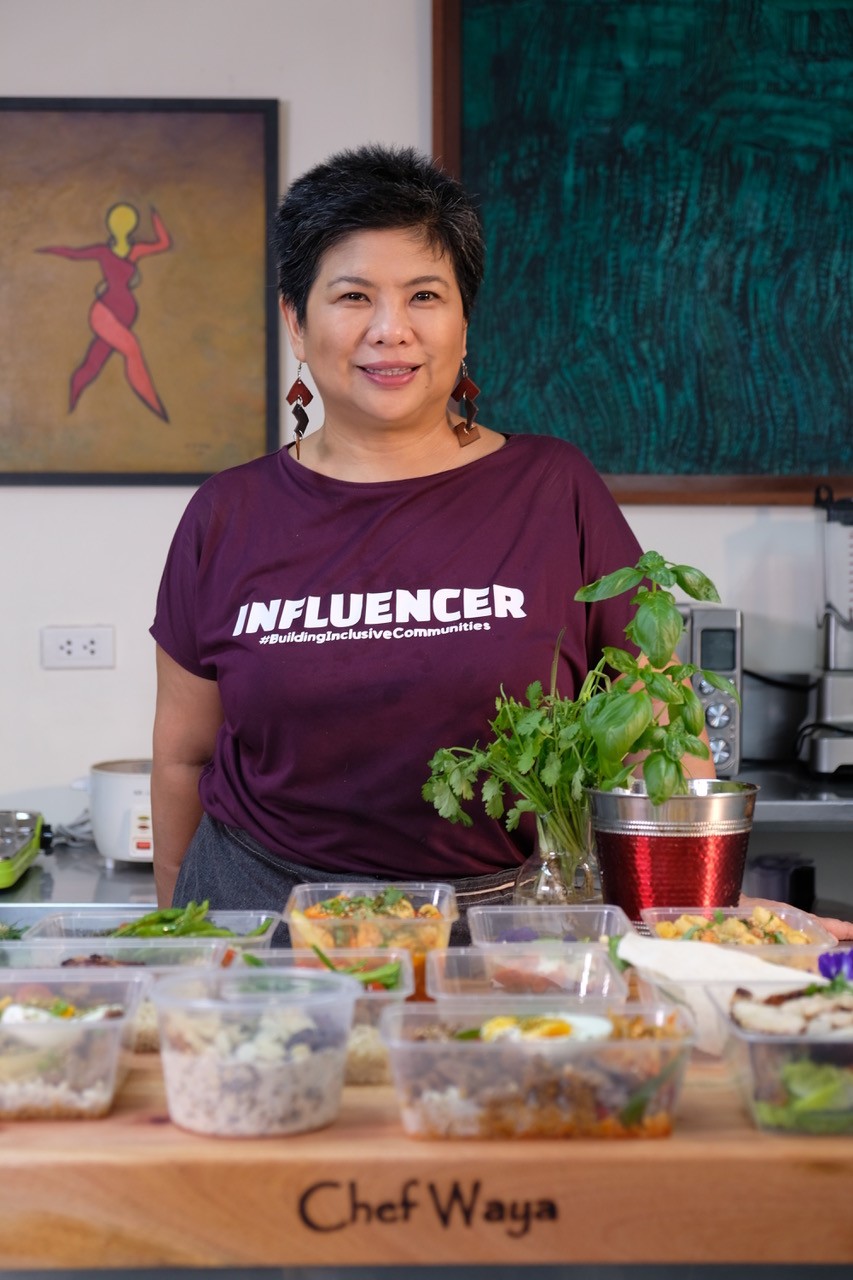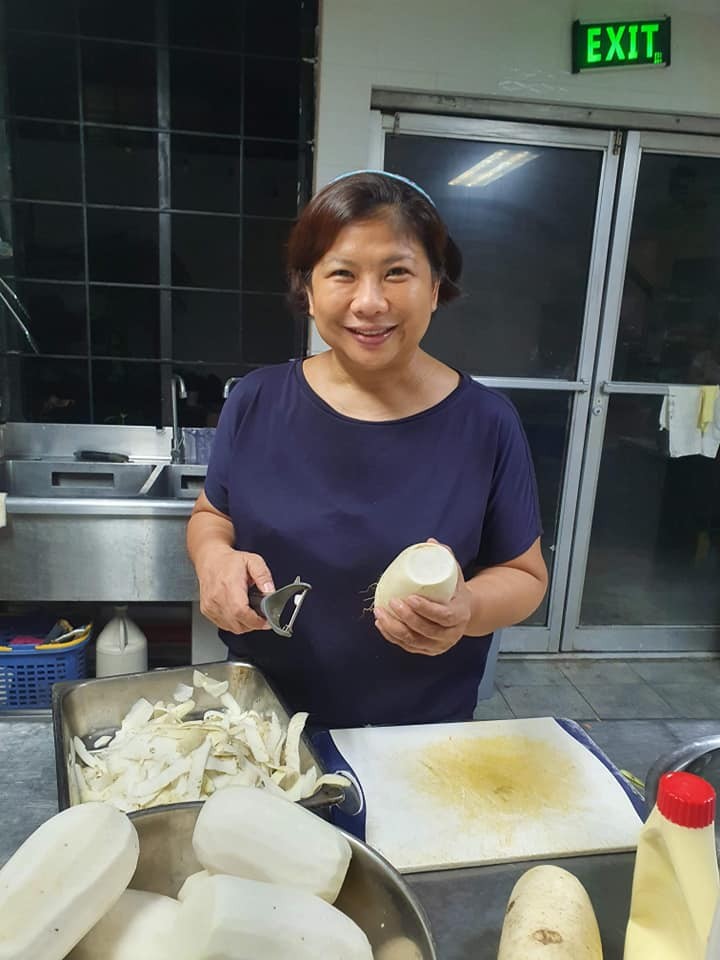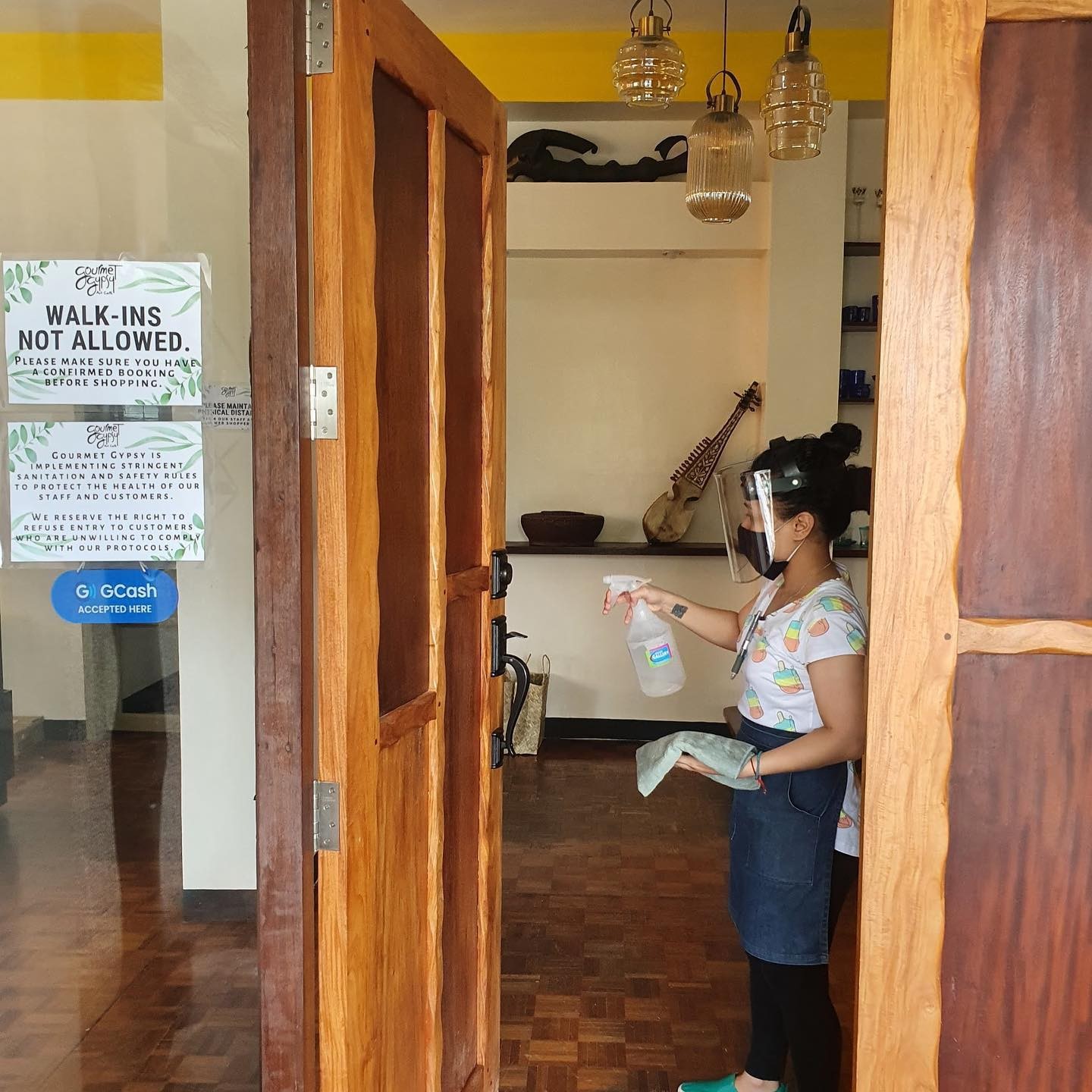
I built Gourmet Gypsy Art Café in 2014 originally as a training laboratory for our students from Open Hand School, a vocational school for teens and adults with special needs. We wanted a supportive environment for them to learn important work skills in a real-life setting and also as a model for inclusive employment.
In the five years that we operated Gourmet Gypsy, it became a real oasis in the neighborhood. We occupied a renovated bungalow with a huge garden on Roces Avenue and decorated it with an eclectic assortment of furnishings from my travels. The eclecticism was reflected on the menu offering global cuisine.
This welcoming, inclusive setting became central to our growth as a restaurant. I sought to create a restaurant that served delicious and interesting food in a welcoming, democratic setting. People come in as they are, dressed up or down does not matter.
This built a community of foodies, ragtag artists, musicians, theater workers, community workers, academics, intellectuals and advocates who frequented our restaurant and called it home. Our workers with special needs flourished here, knowing they were in a place where they were valued and loved.
This year, around February, we felt that a change was happening with the looming COVID-19 crisis. Right after Valentine’s, our sales started going down. And then there was confusion about whether there was going to be a lockdown or not, with no clear guidance from anywhere. We were changing policies about opening times, about social distancing inside the restaurants by the day. Then ECQ was announced. We assured our staff we were going to pay them until April 14 then we would make decisions after the lockdown.

Since we had the staff and facilities, I decided to mobilize to feed frontliners. I’ve been volunteering during disasters since Ondoy, and the latest when Taal Volcano erupted, so I understood disaster logistics. But COVID-19 was a different level of disaster.
We had to plan better to keep our staff safe. My staff and I stayed in our facility to ensure that we would not be exposed to COVID-19 and the food we served would not become a vector for infection.

We instituted exaggerated hygiene and sanitation practices and contactless protocols for pickup and delivery. We started delivering on Day 2 of ECQ and served over 50,000 meals to 35 hospitals in 50 days of operations. We also gave food assistance to six barangays around Quezon City, the Lumad-bakwits and stranded construction workers in UP, and we became a hub for donations that we channeled to other community kitchens.
We had enough savings to pay our staff for one month, but with lockdown looking like it would be extended, we did not know what to do. So in early April, I talked to our accountant and our lawyer to discuss scenarios during and post lockdown. Are people going to come back? Will people still eat at restaurants? If all we can do is delivery, what is the logic of maintaining two branches, two rents, two overheads? How long can we sustain that? My accountant told me to decide early because every day I’m losing money. I had to save as much as I could, so I have room to pivot. If all our resources are exhausted, there’s no going back from there.
“ The whole landscape of the restaurant industry is in shambles and we will need to reformat and reboot how we do things. This crisis has also shown how much wrong there is in the industry — how little resilience we have, how we have been surviving on razor-thin margins at the expense of labor. ”
By mid-April, with the extension of ECQ confirmed, I made the painful, gut-wrenching decision to close down our Roces branch. We had just opened a new branch last November on Maginhawa St. in Quezon City, sharing premises with Open Hand School. This branch was the logical choice to save so we hit two birds with one stone.
For our comeback strategy, we decided not to open for dine-in but to open a grocery by appointment instead. We felt that this was a safer way for us to operate and we would be able to serve our community while continuing with our efforts to flatten the curve. We reformatted our menu to make it ready-to-heat, ready-to-cook, and ready-to-eat. We also stocked a full pantry, to make it a one-stop shopping experience. I hosted products made by small businesses, particularly those led by women. We also re-launched our website, so all products were available online.
Today, we need to figure things out and find a niche for Gourmet Gypsy, where we can create meaning and purpose for ourselves. My goal has always been to develop a community around us that we support and who supports us and develop products we believe in, networks that we believe in. We’re happy to be small but we want to be sustainable.
“ I find that those who call this “new normal” come from a position of privilege. We cannot and should not, allow this to be normal. We must resist. We must take the steps to change it, no matter how painful they may be. ”
The whole landscape of the restaurant industry is in shambles and we will need to reformat and reboot how we do things. This crisis has also shown how much wrong there is in the industry — how little resilience we have, how we have been surviving on razor-thin margins at the expense of labor. We need to find a way to make sure everyone in the industry — from restaurant owners to the lowliest dishwasher — will be able to make a decent living, have job security and benefits that will allow them to weather storms like this.
No way should we accept a “new normal” where people are going hungry, have no job security, are anxious about the future. We cannot say it is the “new normal” to allow the government to get away with not being responsible and accountable to its people. I find that those who call this “new normal” come from a position of privilege. We cannot and should not, allow this to be normal. We must resist. We must take the steps to change it, no matter how painful they may be.
Additonal photos from Gourmet Gypsy Art Cafe's Facebook page.
Edited by Tanya T. Lara
